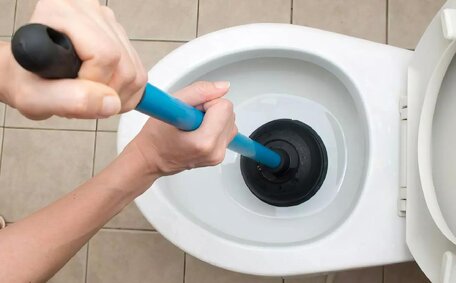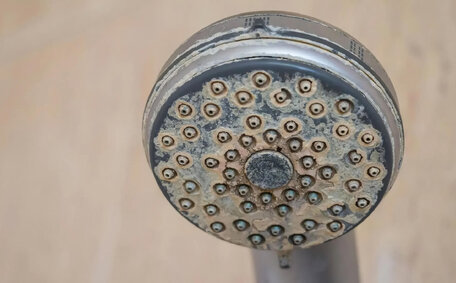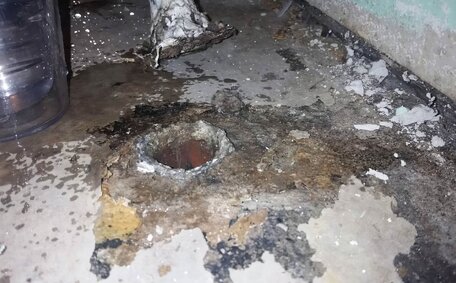Introduction to Gas Line Inspections
Regular inspections of gas water heaters, and heating and cooling systems are crucial for ensuring safety and efficiency in Emu Plains homes. Your natural gas line supplies gas for essential purposes like your hot water system, stoves, and gas heating units. Consistent wear and tear can lead to dangerous gas leaks if pipes are not properly maintained.
Industry safety guidelines recommend comprehensive piping inspections by qualified licensed professionals every two years. Moreover, homeowners should regularly inspect and monitor for gas odours or appliance issues.
This article aims to guide Emu Plains homeowners on best practices for gas line inspections and the significance of carrying them out. We’ll cover schedules, signs of leaks, safety procedures, and steps to take if problems are detected. Following proper gas line protocol is key to avoiding fires, explosions, and carbon monoxide poisoning.
Recommended Frequency for Home Gas Line Inspections
Industry standards mandate comprehensive gas inspections by a qualified professional every two years. Your property’s gas line should also undergo a quick visual inspection whenever there is a smell of gas or appliance issues arise.
More frequent gas plumbing inspections may be needed depending on piping location and age. Buried gas installation maintenance is crucial as lines over 10 years old are more susceptible to corrosion and should be examined annually. High risk areas like kitchens and laundries with numerous appliances should be checked every 6 months.
Signs that your gas lines require inspection include rising energy bills, gas appliance issues such as slow ignition or incomplete burning, or a faint rotten egg smell. Annual servicing of appliances like water heaters, gas heaters and stoves should include inspecting for potential line problems to maintain line repair integrity and assessing the need for maintenance or repair.
Safety is paramount when operating gas-dependent appliances and performing gas line maintenance. Inspection schedules are in place to ensure your home remains gas safe by addressing any leaks, blockages or damages before they pose a risk. We recommend you should inspect with our licensed gas fitter professionals if you notice any gas issues or just want the assurance that your gas lines meet rigorous safety codes.
DIY vs Professional Gas Line Inspections
While homeowners can conduct gas visual checks for potential gas leaks, comprehensive safety inspection procedures should be left to qualified professionals. Book gas fitting professionals with specialised equipment that must be used to complete an all-encompassing gas line inspection, assessing pipes, joints, valves and appliances thoroughly.
DIY inspections are limited to using your sense of smell and visual checks of household appliances and gas lines.
Detect the rotten egg odour that can signify a gas line leak, signalling the need for professional assistance. Visually inspect appliances and gas connections for damage such as dents or corrosion, and incorporate gas line checks into annual safety routines. Pay special attention to older gas pipes or high risk areas like the kitchen.
Detecting gas or suspecting an issue calls for immediate action; It’s best to turn off the main gas valve, vacate the property, and call gas emergency services immediately. Contact the gas company or emergency services without delay. Avoid operating electrical equipment as gas can spark an explosion.
Professionals employ advanced techniques like electronic detectors and pressure testing to accurately locate and resolve gas leaks.
Electronic gas detectors and pressure gauges precisely identify issues invisible to the naked eye.
Technicians can promptly address leaks, blockages, and damages before they pose a risk to your home. Scheduling gas safety checks, especially with older pipes, offers peace of mind through expert analysis.
What To Look For During a Gas Line Inspection
When you do your basic visual inspection of gas lines, be on the lookout for any signs of corrosion, leaks, or obstruction. Carefully inspect all components such as pipes, joints, valves, and appliances connected to the gas line to ensure their integrity. Pay extra attention to high risk areas like the kitchen or laundry.
Look for:
- Rust, corrosion or scratches on metallic pipes or fittings
- Cracks, holes or deterioration in rubber piping
- Any dents, damage or abnormal bending in pipes
- Soot or mineral deposits around joints or appliances
- Bubbles, damp spots or vegetation changes indicating underground leaks
- Obstructions from nests, debris or overgrown tree roots
Also inspect your appliance burners to ensure they have adequate air supply and are blue and steady, not fluttering orange or yellow. This situation can lead to incomplete gas combustion, often arising in places where gas flow is impeded by an obstruction or high pressure issue.
If any concerning signs are detected, switch off your main gas valve immediately and contact us to get a gas line professional team to schedule a comprehensive safety check.
Addressing Issues Found During Inspection
If Any gas line repair issues identified during your inspection must be addressed promptly to maintain gas safety. However, gas line repairs should only be attempted by a licensed plumber with the required expertise.
If a gas leak or other issue is detected, immediately shut off your gas, evacuate the home, cease using gas-connected appliances, and contact your gas company or a specialist plumber. Call the gas company or emergency services to report the issue. Avoid turning on or off any electrical switches, as sparks could ignite leaking gas.
Our team of experts conducts meticulous inspections and repairs during gas appliance servicing to ensure a safe restoration of your gas supply. Damaged sections of pipe are replaced with new gas piping, and it’s often necessary to replace your affected sections to prevent future issues.
Unaddressed gas leaks can have devastating consequences. Annual tune-ups also ensure your appliances need gas efficiently and burn cleanly for energy savings.
Reach out to our Emu Plains team today to schedule your gas line inspection or urgent repair. Our certified technicians conform to national regulations, providing round-the-clock service for both residential and commercial emergencies.
Maintaining Your Gas Lines
Regular line maintenance, including having a professional line inspection done, is vital for keeping gas lines operative, safe and efficient. Simple tasks homeowners can perform include getting a gas line inspection done:
- Keeping the area around your gas meter, pipes and appliances unobstructed. Remove sources of ignition like rubbish or long grass that could fuel leaks.
- Every 6 months, checking connections to your gas appliances for corrosion; keep an eye out for rust, mineral deposits or damage. Address any issues immediately.
- Having professional inspections by licenced gas fitters every 2 years. Tuning appliances and servicing pipes ensures optimum performance.
Technicians use specialised tools to check whether problems exist within the gas line and perform a comprehensive certificate inspection that goes beyond what is visible to the naked eye. Annual servicing reassures homeowners that their appliances meet stringent safety standards. Consider scheduling checks even if you haven’t noticed any problems.
Proactively maintained gas lines mitigate risks of leaks, explosions, and carbon monoxide hazards. They also enhance the efficiency of appliances. Regular maintenance of gas lines is cost-effective and essential for family safety.
Contact our experienced team today for professional gas line services for your home or business. We service Emu Plains 24/7.
Warning Signs Your Gas Lines Need Inspection
There are several concerning signs that indicate your gas lines need immediate inspection:
- You smell that distinct 'rotten egg’ odour when near gas appliances or pipes. This signifies a dangerous gas leak.
- You hear hissing, an unusual sound coming from the gas metre, pipes or appliances.
- Your gas bills have suddenly and inexplicably increased.
- Appliance ignitions seem slow, pilots light intermittently or burners have yellow/orange flames.
- You notice physical damage like dents, corrosion or leaks on pipes or joints.
- Vegetation or soil discolouration above buried gas lines, signalling underground leaks.
If you observe any of these warning signs, it is crucial to immediately check gas valves, shut off the main valve, and evacuate the house. Avoid turning electrical switches on or off or using phones. Contact emergency services and do not attempt to locate or repair leaks yourself.
Our team of licenced technicians have the expertise and equipment to accurately identify the issue and work carried out repairs to safely restore your gas supply.
Call our Emu Plains office anytime if you suspect you need gas line inspection or repair. We are available 24/7 to service the community.
Why Routine Gas Line Inspections Matter
Routine gas line inspections are vital for preventing hazardous leaks, explosions, and the dangers of carbon monoxide. Gas piping is a complex system with many potential failure points. Regular professional assessments using advanced detection equipment identify wear, corrosion, blockages, and other invisible issues before they become hazardous.
Regular tune-ups enhance energy efficiency and address issues promptly, extending the lifespan of plumbing systems and appliances. Technicians can make sure minor problems like pressure drops are addressed before they necessitate costly repairs. Documenting regular safety inspections not only provides peace of mind but may also be necessary for meeting insurance requirements.
Homeowners unsure of their responsibilities should schedule a gas system inspection to ensure compliance with strict safety standards. It’s prudent to schedule yearly comprehensive inspections even in the absence of apparent issues. Preventative maintenance is a wise investment that minimises risk and reduces long-term expenses.






